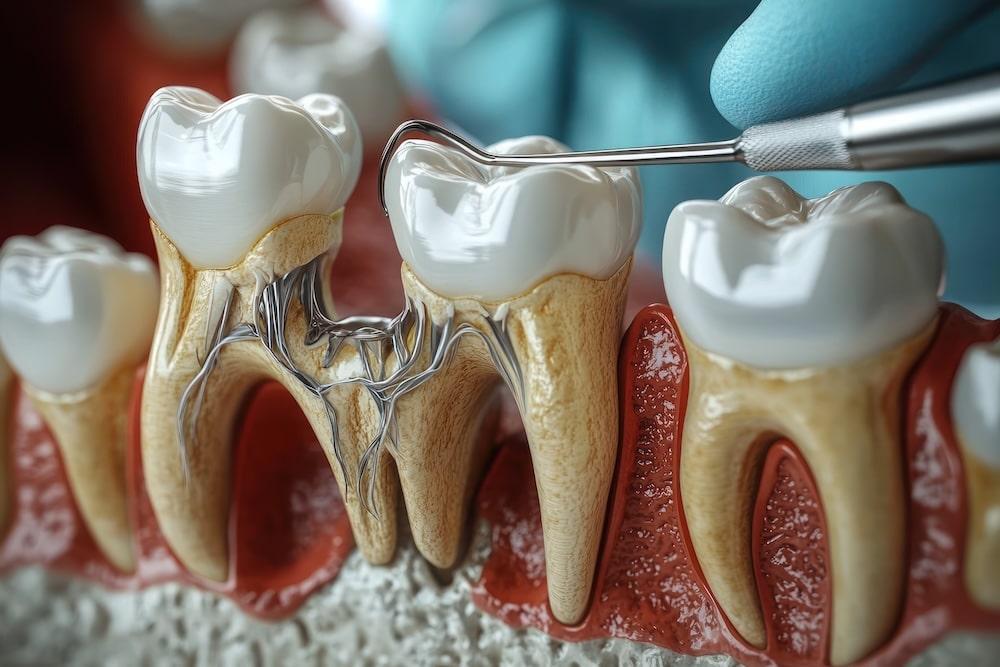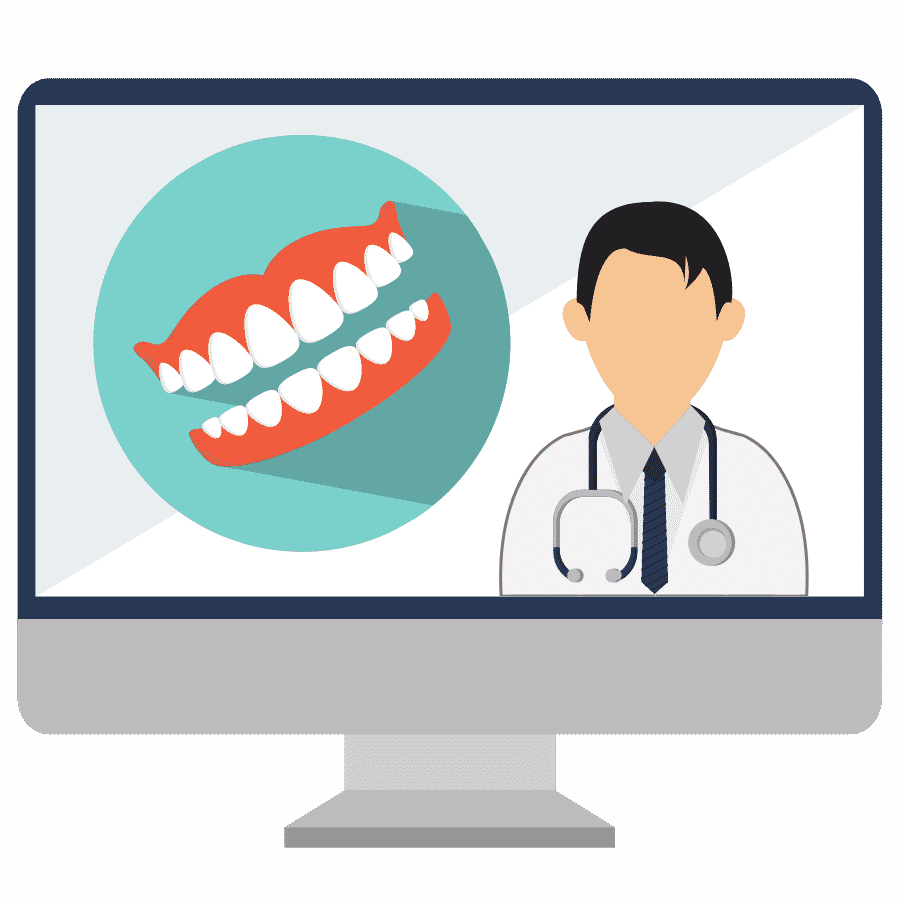Perhaps nothing is more unsettling than confronting the reality of dental bone loss. It’s a moment that can bring a smorgasbord of emotions to the forefront–from concern and confusion to an earnest desire to turn things around.
Dental bone loss, put simply, is the loss of bone density in the jaw, the very foundation that holds your teeth in place. The reasons behind this condition can vary widely. Aside from poor brushing and flossing habits, common causes include tooth loss and gum disease (periodontitis), which might seem a distant concern until it’s up close and personal. Other reasons, albeit less talked about, are osteoporosis, hormonal changes, or certain medications.
To say that any of these factors can pull a fast one on us isn’t far from the truth. Gum disease, for example, can lead to further oral health issues, including the additional loss of teeth and a significant impact on your overall well-being if left unchecked.
Signs and Symptoms to Watch Out For
Being smart about your dental health means being aware of the signs that trouble might be on the horizon. After all, detecting dental bone loss early on can make a big difference.
So, what should you consider as a wake-up call for action?
Gum Recession
When your gums start to retreat, pulling back and leaving more of your tooth—and potentially its root—exposed, it’s not merely an aesthetic change. Receding gums indicate underlying changes in your bone structure.
Tooth Mobility or “Bite Test”
When we speak of ‘bite integrity,’ we’re talking about how well your teeth come together when you bite down. If something feels off like your teeth don’t line up the way they used to or your dentures aren’t fitting comfortably anymore, it’s a clue that your dental health requires attention.
Sensitivity
Lastly, if your teeth feel more sensitive than usual, causing discomfort when you eat or drink hot or cold items, it’s important to take note of these changes. While it may seem like a minor issue, it can signify that your teeth and gums need extra care, especially if you’re also noticing any other changes mentioned above.
Prevention is Better Than Cure
When it comes to bone health, particularly your teeth, prevention is always key – and it’s easier to manage than you might think. It won’t be too late if you observe proper dental care.
Nutritional Adjustments
To fortify your teeth, let your diet be your first line of defense. Select snacks not just for their flavor but for their capacity to bolster bone health—think dairy rich in calcium, phosphorus-packed seeds, and vitamin D-enriched fatty fish. These choices do more than satisfy your palate. They pack a punch against dental decay and make every meal an opportunity to raise the ante for teeth health.
Quitting Detrimental Habits
Now, navigating the waters of habit cessation, especially smoking, can feel like losing your innocence in a world filled with indulgence. It’s tough, we get it, but your bones, gums, and teeth will thank you immensely. Smoking doesn’t just stain your teeth; it’s a direct assault on their integrity. Encourage incremental improvements in your lifestyle to keep your temper mellow as you part with your vices. Each cigarette not smoked is a victory, swilling out toxins and paving the way for a brighter, healthier smile.
Cultivating Healthier Routines
Beware of letting your dental care routine grow stale and unproductive. Embrace the down-and-dirty work of daily flossing and brushing—your dental health hinges on these habits. Coupled with regular dental check-ups, this disciplined approach ensures that your teeth don’t bear the brunt of neglect.
Alterations in lifestyle can initially seem daunting, yet each positive change is a stride toward preempting dental disasters.
If You Already Have Extreme Bone Loss or Missing Teeth, New Teeth Now Can Help
For those already facing severe bone loss, missing teeth, or the inability to undergo traditional treatments like bone grafts, New Teeth Now offers a revolutionary solution. Unlike conventional methods that require extensive bone reconstruction, our full-mouth dental implant procedure bypasses the need for grafting altogether.
New Teeth Now specializes in same-day, full-arch dental implants that provide immediate, permanent solutions for individuals who have been told they don’t have enough bone for implants. With advanced technology and an experienced team, we make it possible to restore your smile in just one day, eliminating months or even years of waiting associated with traditional implant procedures.
Our approach ensures:
- No need for painful, time-consuming bone grafting procedures
- A full set of natural-looking, fixed teeth in a single visit
- Restored function and aesthetics, allowing you to eat, speak, and smile with confidence
If you have been struggling with extreme dental bone loss and thought a permanent solution was out of reach, New Teeth Now is here to provide a life-changing alternative. Schedule a consultation today and take the first step toward regaining your smile—without the wait or complications of traditional methods.
Wrapping It Up
Recognizing dental bone loss early is crucial for effective management. Stay alert for unceremonious signs of trouble, such as gums pulling back, loose teeth, changes in how your teeth fit together, and increased teeth sensitivity. These symptoms can leave your dental health in limbo if ignored. Preventing the issue before it worsens is always preferable. Improving your diet with nutrients that bolster bone health, quitting smoking, and committing to consistent dental care are all part of a strategy to rebound from or prevent oral health declines.
For individuals grappling with dental bone loss, modern dentistry offers hope without the mega price tag of invasive procedures. Innovations like bone grafts and tissue regeneration have begun to blur the line between nature and scientific intervention, offering new ways to close the gap in bone health. State-of-the-art treatments such as ultrasonic bone healing and laser therapy are on the upswing, proving their worth as powerful allies in combating bone loss. Yet, traditional approaches and a laser-like focus on preventative measures haven’t missed the mark; they remain at the core of oral health maintenance.









